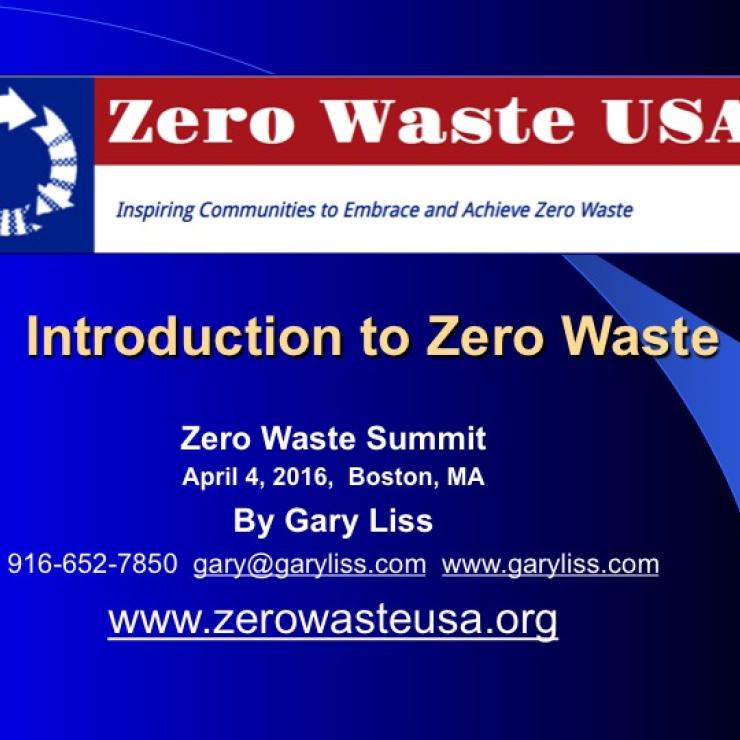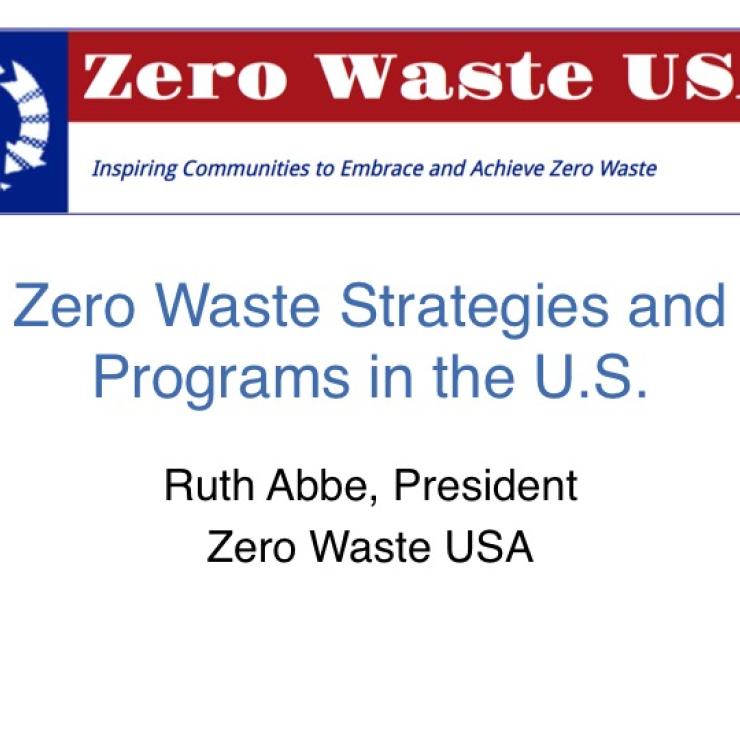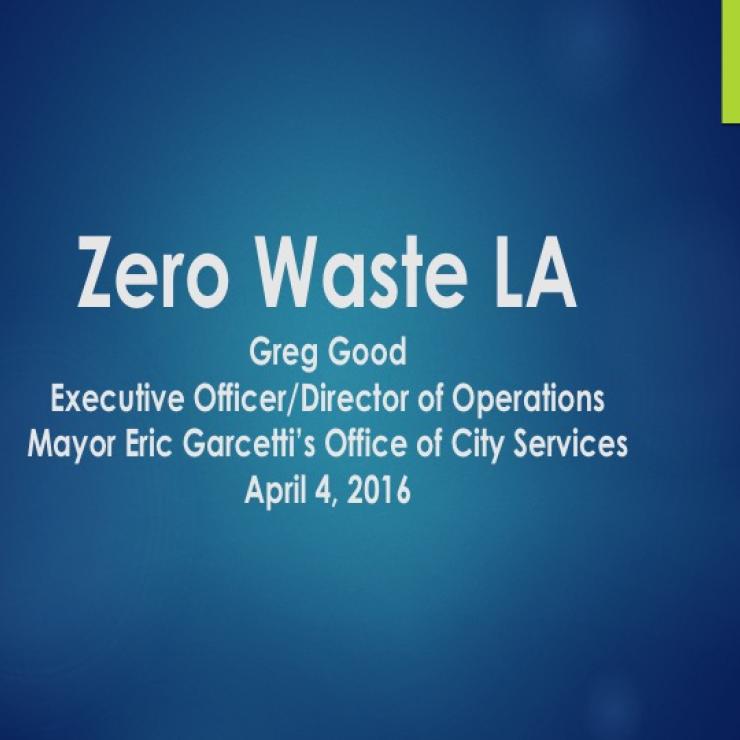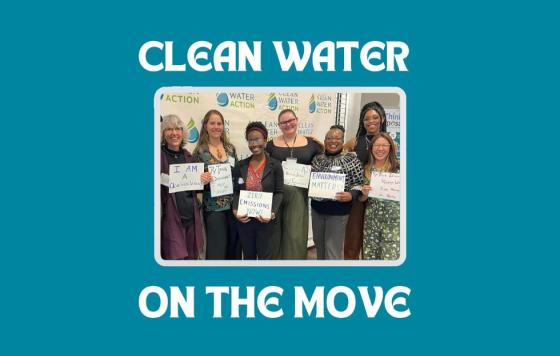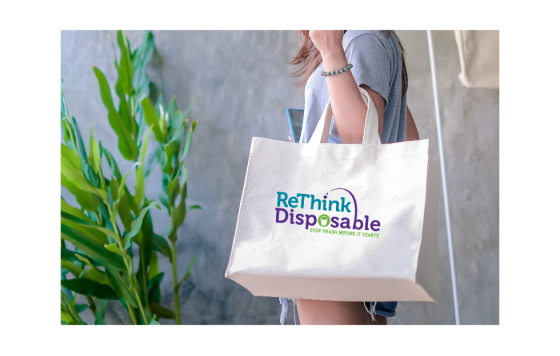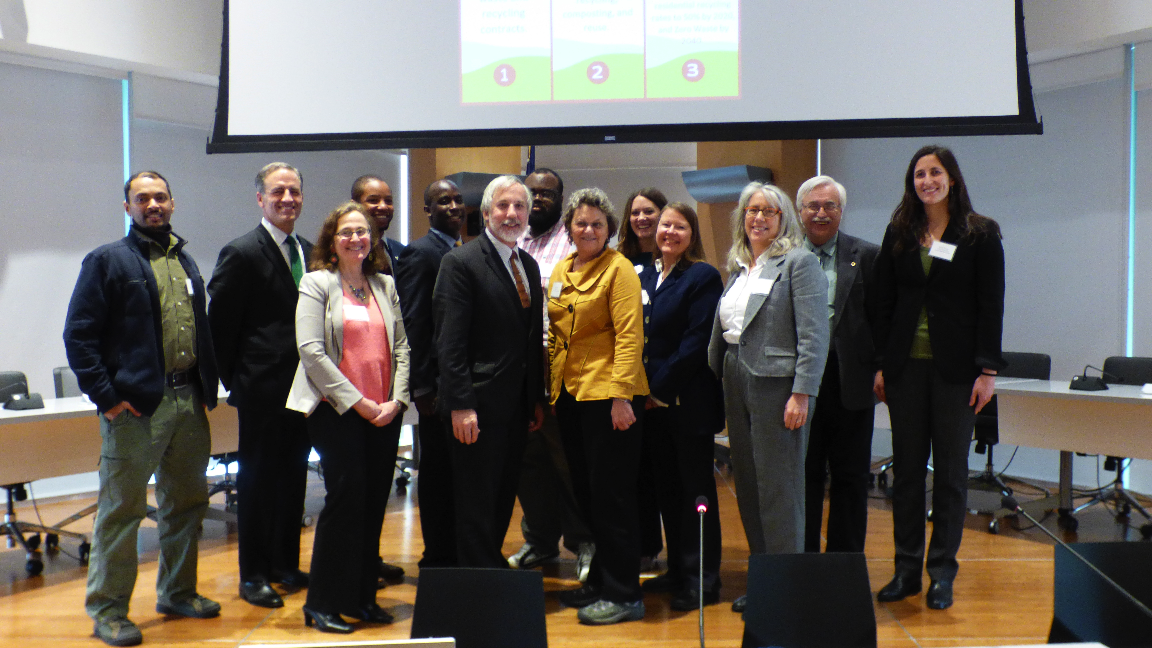
On April 4, during a surprise Spring snowstorm, the City of Boston and the Boston Recycling Coalition joined forces to host our first-ever Zero Waste Municipal Leaders Summit. Despite the weather, the room was abuzz with anticipation at the newly opened Bolling Building in Roxbury's Dudley Square: a good day to talk trash.
(Scroll down and click images to view presenters' slides.)
Over 20 officials from several City departments and City Council, most of whom had never discussed with any other department their role in regulating waste, joined in talks with visitors from nine other towns across Eastern MA, as far afield as Lowell and as close as Chelsea and Somerville. Adding to the mix were three special guests from accomplished Zero Waste-driven municipal programs: Los Angeles, Austin and San Francisco.
Nationally known ZW experts facilitated, and the BRC team assisted in discussions. The goal was to explore what has been done elsewhere, successfully and not, and to consider steps Boston can take to capture economic gains by diverting waste from incinerators and landfills. We discussed how to structure contracts so they drive climate goals and are fair for industry workers. We also talked about under-utilized technologies like anaerobic digestion of organic waste, financing Zero Waste programs and education, and even using recycled materials to spark a local resurgence of manufacturing.
The MA Department of Environmental Protection, which funded the summit and follow-up meetings aimed at getting recommendations for a ZW planning process to Mayor Martin Walsh, has advocated for using the scale that comes with regional collaboration to advance concepts like "extended producer responsibility". And the experiences of our visiting cities was helpful in imagining what might work here.
For BRC, this was a culmination of over six years' work: finally working closely with the Environment and Public Works departments to set up a community-driven planning process that meets the needs of a full range of stakeholders. Time will tell what comes of it all, but one thing's for sure: we won't solve this problem without everyone at the table.
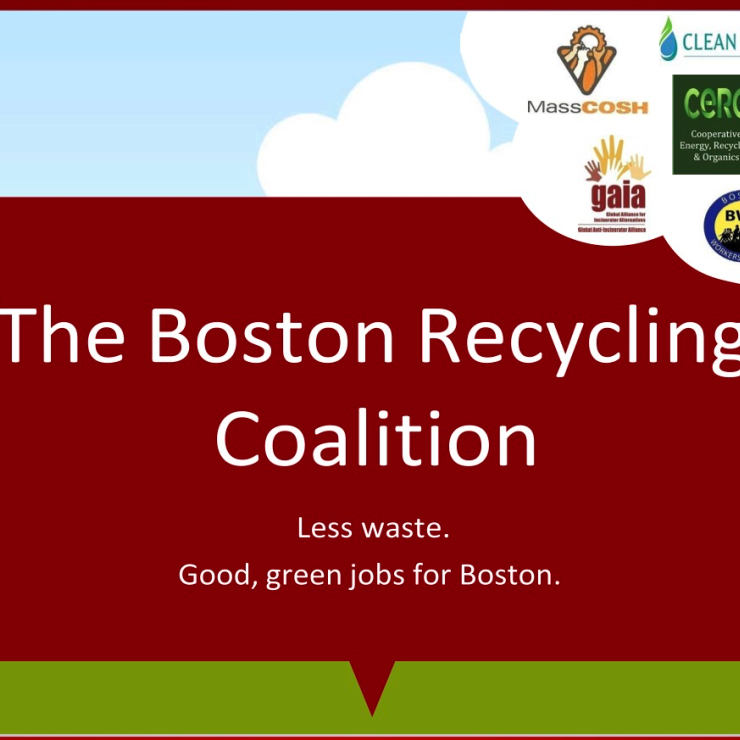
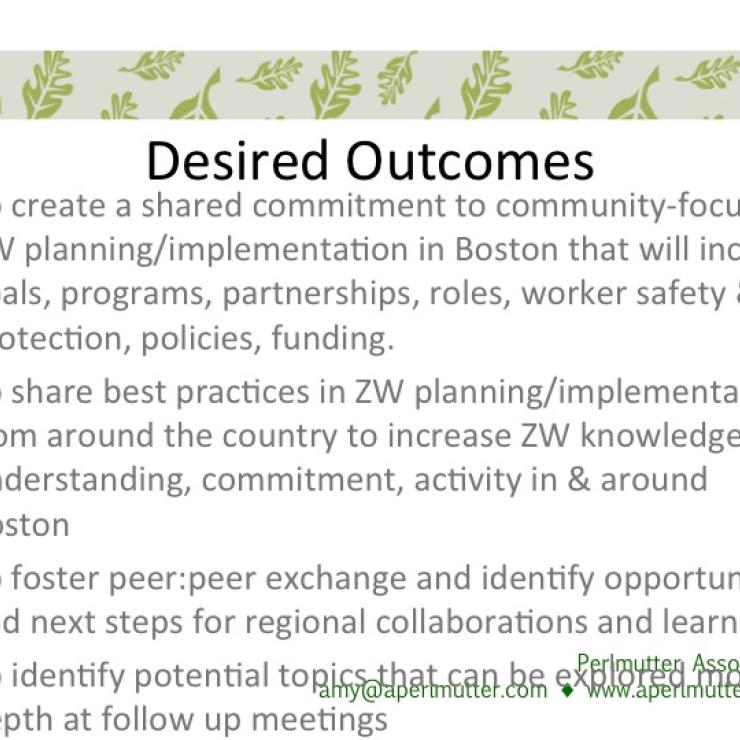
Click the presentations below to learn more about Zero Waste!
